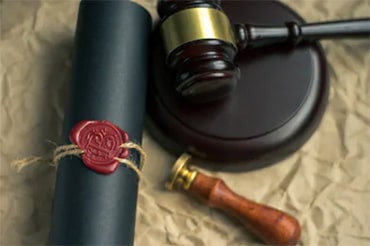

The requirement for probate depends on various factors, including the nature and value of the assets, state laws, and the will’s provisions. In general, if assets solely owned by the deceased person need to be transferred to beneficiaries, probate is often necessary. Probate is the legal process by which a court validates a will and oversees the distribution of assets. However, certain assets may pass outside of probate, such as those held in a living trust or assets with designated beneficiaries. Therefore, it is advisable to consult with an attorney to understand the specific requirements in your jurisdiction and the circumstances surrounding the estate.
Importance of a Probate of the Will
The probate process serves several important purposes:
Validating the will:
Probate ensures that the will is legally valid and authentic. The court reviews the document, confirms its legitimacy, and determines its enforceability.
Resolving disputes:
Probate provides a forum to address any disputes or challenges to the will. Interested parties, such as potential heirs or creditors, can raise objections or contest the will if they believe there are grounds to do so. The court evaluates the evidence and makes a decision regarding the validity of the will.
Appointing an executor:
Probate appoints an executor or personal representative to oversee the administration of the estate. This person is responsible for carrying out the terms of the will, paying debts and taxes, gathering assets, and distributing them to the beneficiaries.
Protecting creditors’ rights:
Probate ensures that creditors have an opportunity to make claims against the estate. The executor notifies known creditors, providing a period for them to submit their claims. This process prevents the estate from being distributed before debts are settled.
Facilitating asset transfer:
Probate provides the legal mechanism to transfer ownership of assets from the deceased person to the beneficiaries named in the will. It establishes a transparent and formal process for distributing property and resolving ownership disputes.
While probate can be time-consuming and may involve court fees and legal expenses, it serves a crucial role in ensuring the orderly administration of an estate, protecting the rights of all parties involved and providing a transparent and fair distribution of assets according to the deceased person’s wishes.
Creating a list of assets is a Very Important Factor.
Indeed, creating a comprehensive list of assets is a crucial factor in estate planning and the probate process. Here’s why:
Identifying assets:
Creating a list helps ensure that all assets the deceased person owns are accounted for. This includes real estate, bank accounts, investments, retirement accounts, vehicles, personal belongings, and other valuable possessions.
Determining ownership and beneficiaries:
The asset list clarifies the ownership of each asset and helps identify any joint owners or beneficiaries designated for specific assets. This information is essential for distributing assets according to the terms of the will or applicable laws.
Valuing the estate:
An accurate inventory of assets allows for estimating the estate’s total value. This valuation is necessary for determining any estate taxes owed and assessing the estate’s financial health.
Settling debts and obligations:
The asset list assists in identifying any outstanding debts or financial obligations of the deceased. This information is crucial for the executor to settle debts using the available estate assets.
Distributing assets:
The list of assets guides the executor in properly distributing property to the beneficiaries as outlined in the will or according to intestacy laws if there is no will. It ensures that all assets are accounted for and distributed appropriately.
Avoiding complications and disputes:
A thorough asset list can help prevent disputes and confusion among beneficiaries regarding the estate’s contents. In addition, having a clear record of assets makes disagreements or claims of undisclosed assets less likely to arise during the probate process.
To create an effective asset list, it is advisable to document all relevant information, including the description of each asset, its approximate value, location, and all pertinent ownership or beneficiary details. In addition, it can be beneficial to seek professional advice from an attorney or estate planner to ensure all assets are appropriately identified and accounted for.
The post Is Probate Required if There is a Will? appeared first on locallawyerny.com.

